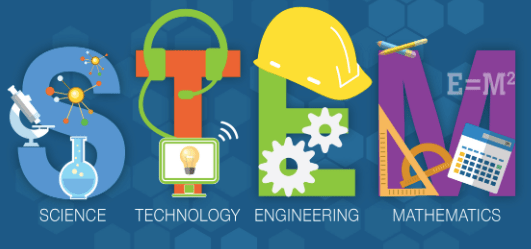There’s a new type of MBA in town – and it’s designed to tackle several issues facing the business world today. As more and more businesses are incorporating tech into their business, a growing number of business schools in the U.S. are offering “STEM designated” MBA programmes – where half their course material is based on the STEM fields – as a hybrid degree that prepares leaders for the growing tech/business employment gap.
The STEM MBA adds a futuristic dimension to the traditional MBA by arming business grads with STEM capabilities, making their MBAs more relevant for an age of digitisation and robotics.
Having been around only in the last three years or so, the STEM MBA has been enticing more students from abroad, as it gives MBA grads greater opportunities to work in the USA post graduation.
Schools that offer STEM MBA

The University of Wisconsin-Madison was the first business school to receive STEM designation for concentrations within an MBA programme in 2016. Soon after, top U.S. institutions also began offering the designation.
Duke University’s Fuqua School of Business, Carnegie Mellon’s Tepper School of Business, the University of California’s Haas School of Business, and Harvard University all began to offer STEM designations for some of their MS or MBA programmes in the past couple of years.
Because of its popularity, it’s not surprising that the number of schools offering STEM designated MBAs is increasing fast.
What is a STEM MBA?
In business, the problems are complex, often requiring multiple functionalities to find an answer, and in fast-growing STEM industry, there is a constant need to drive innovation.

“The STEM designation will have a far-reaching impact. As the importance of data analytics grows across every industry, it is critical that fresh grads understand how to collect, interpret, analyse, and use that data to make critical business decisions,” says Andrew Ainslie of the University of Rochester’s Simon School of Business. In addition, STEM MBA graduates will boast in-demand tech skills alongside the ability to lead a team.
More and more MBA programmes across business schools in the U.S. are adopting STEM; so far, only some MS subjects – like Accounting and Business Analytics – qualify for the designation to date, with the list growing fast.
At Texas Tech University’s Rawls College of Business, the STEM MBA is designed for students with an undergraduate degree in a STEM discipline (upon completion of at least 90 credit hours) to get an MBA designation, with courses including accounting, economics, law, management, and strategy.
There are also joint programmes, like Harvard University’s MS/MBA programme conferred by Harvard Business School and their Graduate School of Arts and Sciences (GSAS), catered to students interested in combining science and business for the healthcare industry.
Simon School of Business was the first institution in the U.S. to introduce a STEM-designation for every specialisation in all of their programs. Carnegie-Mellon’s Tepper School of Business also currently offers a similar option.
Depending on the school, not all STEM MBA applicants need to have a science or technical background.
Benefits of a STEM MBA
A STEM MBA is especially popular with international students. This is because the STEM OPT extension gives them the opportunity to gain three years of work experience in the U.S. after completing their degree while remaining on their student visa; that’s two additional years on OPT compared to those with a non-STEM student visa.
From the perspective of post-study careers, a STEM MBA is increasingly popular among employers. The skills that graduates acquire while studying these degrees—a mix of technology and management—can go along way in the current workplace.
For students intending to work long-term and move to the U.S., it also provides 3 chances at the annual H1B visa lottery, reducing the risk for international students and the employers hiring them. What’s more, starting salaries for international students who pursue a STEM designation have increased year-over-year, and continue to climb. According to NACE’s 2019 Salary Survey, STEM graduates will continue to earn the highest salaries.
With the rise of STEM industries such as cyber, artificial intelligence, quantum research, and even nanotechnology, any graduate with a STEM MBA will be in-demand, making that education programme a very worthwhile investment.











